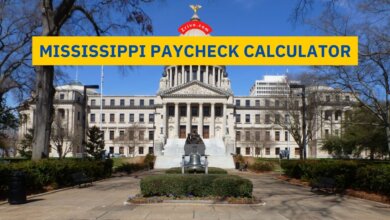Connecticut Paycheck Calculator 2023 - 2024
We know that you are confused because of these tax cuts. That's why we strongly recommend that you use Zrivo's Paycheck Calculator. In this article, we will talk about the advantages of using Zrivo's Connecticut Paycheck Calculator.

Contents
The Connecticut Paycheck Calculator allows you to quickly calculate the amount of money you can expect to earn from your employment in this state. Whether you are a small or large company, this tool will help you ensure that you are paying all the appropriate taxes. You will also be able to determine the amount of money you can save with a proper tax deduction.
Tax rates in Connecticut
There are a variety of taxes to consider when moving to Connecticut. Among the many ways, Connecticut levies money from residents is property, sales, estate, and corporate income tax.
The state of Connecticut has some of the highest taxes in the country. It also has the second-largest tax burden. To understand why the tax burden is so high, you must first examine how Connecticut’s tax system works.
The most obvious way to calculate property taxes in Connecticut is to multiply the property’s value by the state’s mill rate. However, it’s important to remember that the mill rate is just one component of the total tax you’ll pay.
For instance, the Connecticut Department of Revenue Services has a website that lists all the taxable services and products. You’ll find the complete list of exemptions at that site as well.
Property taxes are used to help cities and towns pay for their operations. Generally, they’re distributed to each village by the local government.
Withholding requirements
When you move to Connecticut, you should know the withholding requirements for paycheck calculation. This is important because the state has a progressive income tax system. The withholding rates vary depending on the employee’s filing status and the taxable income.
You can use the Connecticut withholding calculator to estimate the amount of tax that will be withheld from your employees’ paychecks. However, the calculator only approximates and does not represent legal authority.
If your business has employees in Connecticut, you should register with the Connecticut Department of Revenue Services. In addition, you must maintain a good record of paying taxes. Also, you must electronically remit payments. Depending on the payment type, you can do so through a Business Telefile System or the Taxpayer Service Center.
All employers in Connecticut must file quarterly summary reports. These returns are due on the last day of the month following the quarter’s end.
Exempt employees from certain payroll taxes
If you’re an employer in Connecticut, you must be familiar with the payroll taxes imposed on you. Knowing what to do when employees claim they are exempt is essential.
Aside from knowing the laws, you must also understand the appropriate forms to use. In particular, the W-4 form is a must.
Employers use this form to compute withholdings and determine whether or not an employee is exempt from various taxes. It provides the appropriate amount to withhold based on the employee’s exemptions in Form M-4.
Aside from the federal income tax, you’ll have to withhold and pay the state income tax. You may have to reissue your state income tax certificate to reflect your new location.
You should also be aware of the FUTA unemployment tax. It is a 0.6 percent tax on employers. The maximum tax is $420 per employee.
Mandatory paid leave for an employee’s health condition.
If you work for an employer in Connecticut, you may be eligible for up to 12 weeks of paid leave for your health condition. The Family and Medical Leave Act (FMLA) applies to private-sector employers with more than 50 employees. It also applies to public-sector employers. In addition, it allows unpaid leave for medical reasons.
While FMLA greatly benefits many people, it does carry specific requirements. For instance, you must provide medical documentation for absences lasting more than three days. You must also notify your supervisor as soon as possible.
In addition to the FMLA, Connecticut has two other laws that cover family and medical leave. One is the Connecticut Paid Sick Leave Act, passed in 2012. Another is the Healthy Workplaces, Healthy Families Act of 2014. This law is set to take effect July 1, 2015, covering the state’s minimum wage.
These laws will make it easier for employees to take time off to care for their or a loved one’s health. They also prohibit retaliation against an employee who uses leave.
Do you know that Connecticut residents don’t have to pay local taxes? This is because there is no city or town in the state that imposes its own income taxes. This state has seven tax brackets, ranging from 3.00% to 6.99%. This tax bracket increases in proportion to the salary you earn.
Many people are interested in knowing the exact amount of money they can earn in Connecticut. The Connecticut paycheck calculator can be useful for this purpose. By entering a variety of details into the Connecticut paycheck calculator, you can figure out the exact amount of money you can earn. The calculator also lets you adjust certain factors, such as the number of hours and weeks you work. You can even use this calculator to compare salaries between states and countries. Let’s take a look at the details here:
It is important to note that the calculator is intended to be a general guide. You should not use it to calculate the exact amount of taxes or payroll you should pay. Moreover, it doesn’t provide legal or tax advice, so you should use the calculator only after consulting with an accountant. To use this Connecticut paycheck calculator, all you need is a computer and an internet connection.
There are many other benefits of using a paycheck calculator. Connecticut income tax calculators are easy to use, and you can use them to your benefit. The calculators are available on a website that provides state income withholdings and tax calculators. You can also find a free Connecticut paycheck calculator below and use it to compare your pay with other states and countries. It is easy to use, and the results are accurate.
This Connecticut paycheck calculator will give you a full breakdown of your paycheck by entering the total amount of income tax, state and federal taxes, and deductions. You can also email the Connecticut paycheck calculator to friends and family so you can keep track of the amount of taxes you need to pay. But, while using the calculator, please do not forget that these taxes vary depending on your situation.
Last but not least, if you are paying employees on a salary, you should also use a Connecticut paycheck calculator. This will help you figure out how much money you can earn for a number of hours. By using this calculator, you can see how much money you can earn every month after taxes and benefit deductions. You can also enter your annual salary and the number of hours you work to find out your pay rate. Lastly, you can input the number of bonuses or commissions you earn. Below, you can find the free Zrivo’s Paycheck Calculator.





